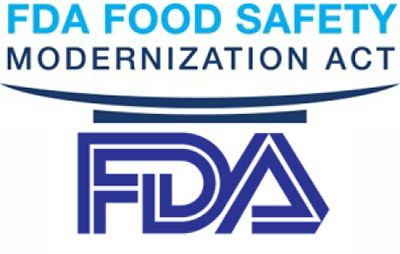Food Safety Modernization Act calls for changes in operations for food shippers and carriers
The coming changes stem from the United States Food and Drug Administration’s (FDA) food safety rule, entitled the “Sanitary Transportation of Human and Animal Food” which was published in April 2016 and is part of the Food Safety Modernization Act (FSMA).
In what can be viewed as a long time coming in some respects, freight transportation and logistics stakeholders involved in the transportation of food products will be working off of a new playbook in June.
The coming changes stem from the United States Food and Drug Administration’s (FDA) food safety rule, entitled the “Sanitary Transportation of Human and Animal Food” which was published in April 2016 and is part of the Food Safety Modernization Act (FSMA), which was signed into law in January 2011.
The main objective of the food safety rule, according to the FDA is to “protect foods from farm to table by keeping them safe from contamination during transportation” and also “prevent practices during transportation that create food safety risks, such failure to properly refrigerate food, inadequate cleaning of vehicles between loads and failure to properly protect food.
And it applies to shippers, receivers, loaders, and carriers transporting food in the United States by motor vehicle or rail.
The “Sanitary Transportation of Human and Animal Food” rule takes effect for large businesses on April 6, 2017, one year after the date of the final rule being published, and April 6, 2018 for small businesses, which the FDA defines as businesses other than motor carriers who are also not shippers and/or receivers with less than 500 people or motor carriers with less than $27.5 million in annual revenue.
The rule incudes many requirements for these parties, especially shippers and carriers to adhere to, including:
- vehicles and transportation equipment need to be suitable and adequately cleanable for their intended use and capable of maintaining necessary temperatures for the safe transfer of food;
- taking measures to ensure food safety, like adequate temperature controls, preventing contamination of ready to eat food from touching raw food, and protection of food from contamination by non-food items in the same or previous load and protection of food from cross-contact;
- training carrier personnel in sanitary transportation practices and documentation of training, which is required when the carrier and shipper agree that the carrier is responsible for sanitary conditions during transport;
- maintenance of records of written procedures, agreements and training, with required retention time for these records dependent upon the type of record and when covered activity occurred but not exceeding 12 months
Another significant change that comes with this rule is that “primary responsibility for determining appropriate transportation operations now rests with the shipper who may rely on contractual agreements to assign some of these responsibilities to other parties,” said the FDA.
Among these other parties are freight brokers, a requirement that was objected by many in the 3PL sector, said Brian Augustine, a partner at Cincinnati, Ohio-based Porter Wright.
“This is due to the reasons you would anticipate in that they don’t typically see the freight and they often or always take the position that they don’t exercise control over the carriers but nevertheless in many circumstances under this new rule freight brokers are defined as shippers and are subject to many if not all of the same requirements that shippers are when arranging for the transportation of food,” he said.
While this is a major change, Augustine explained that many brokers already had a practical business incentive to know, for example, what is required in order to safely move a load for things like trailer temperature and making sure certain types of cargo were not transported in the trailer previously.
With freight brokers now grouped as part of the shipper group, as per the rule, Augustine said a crash course of sorts may be required for brokers and their personnel so they will be able to determine what is required in order to keep food safe during transport.
“It is not only a smart business practice for a broker to ask a shipper what is the temperature of the trailer or what must be done specifically, now it is specifically required that they secure that information and communicate that on to the carrier,” he said. “Not only do they have to be certain to get the information and communicate it, they need to do so in writing and need to prepare written procedures and policies that outline how they are going to do so and it is a case by case depending on what shippers, specifically freight brokerage companies, do.”
As for enforcing the rule, Augustine said that is hard to say prior to June 1, but he said pointed out that there are some hints, with the rule’s language states that the FDA intends to work with the DOT to be certain that the rule is implemented and to ensure motor carriers are complying.
Rich Coppola, VP of sales and marketing, for East Coast Warehouse, a temperature-controlled logistics provider for the food and beverage industry, based in Elizabeth, N.J., said a major theme of the rule is its focus on preventing a food-related contamination rather than responding to one.
“Companies need to be more sensitive to the fact that they need to be more proactive in making sure the processes are in place while preventing the actual food borne contamination versus ‘a pretty robust recall program, and if there is a problem we will be able to issue a recall and get our arms around it,’” he said. “I think the government’s feeling is to prevent it in the first place so we don’t have to worry about reacting to it.”













